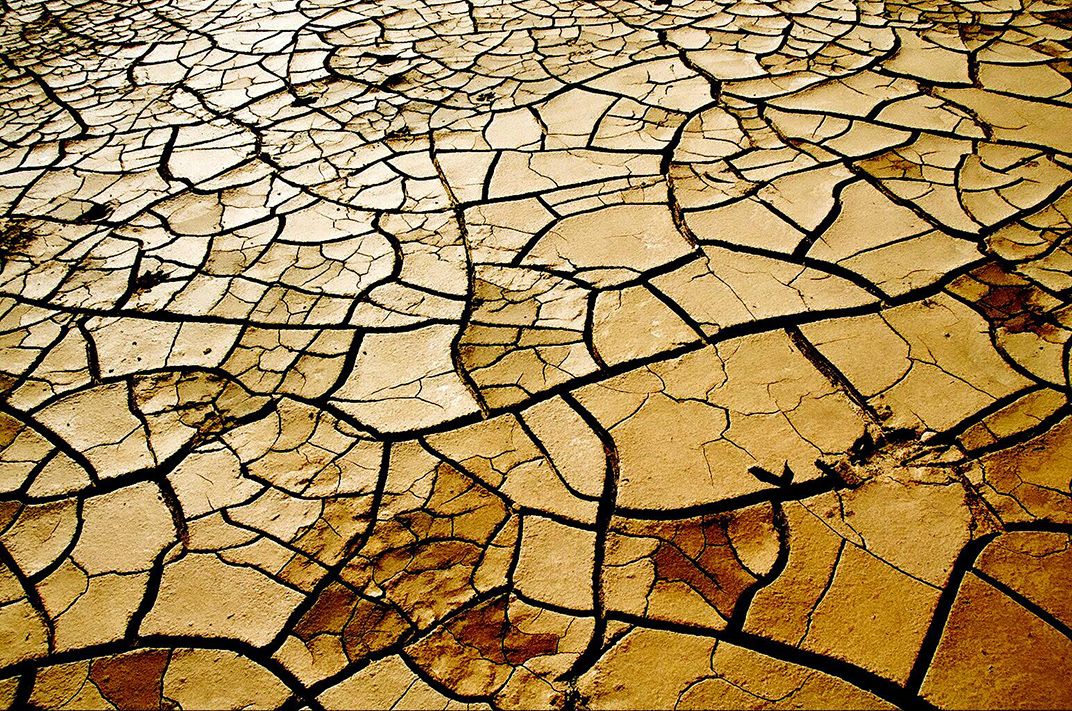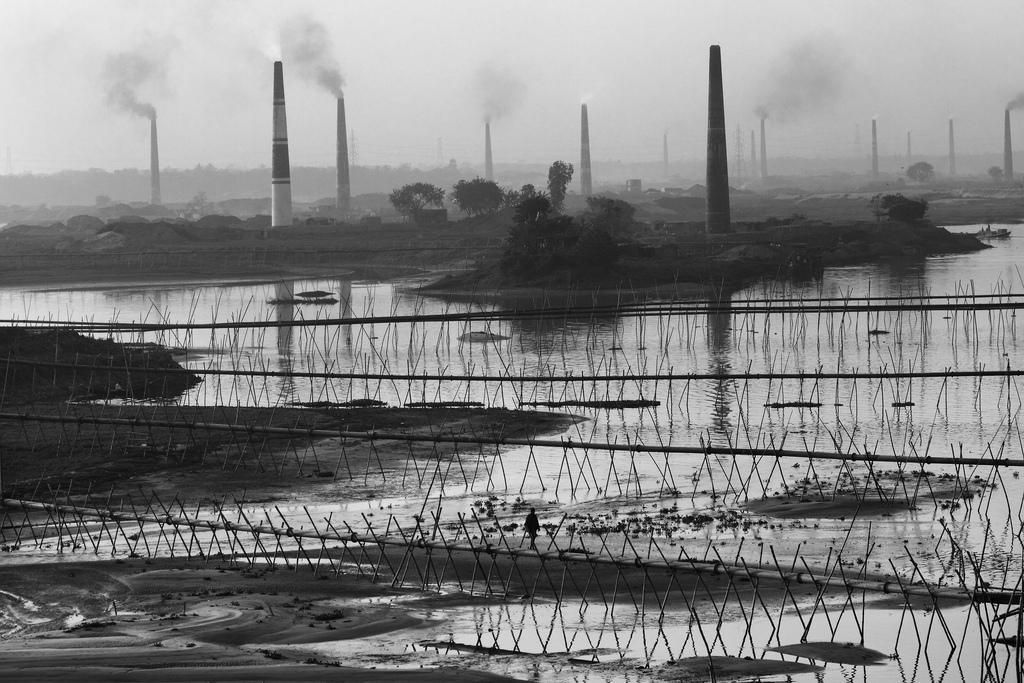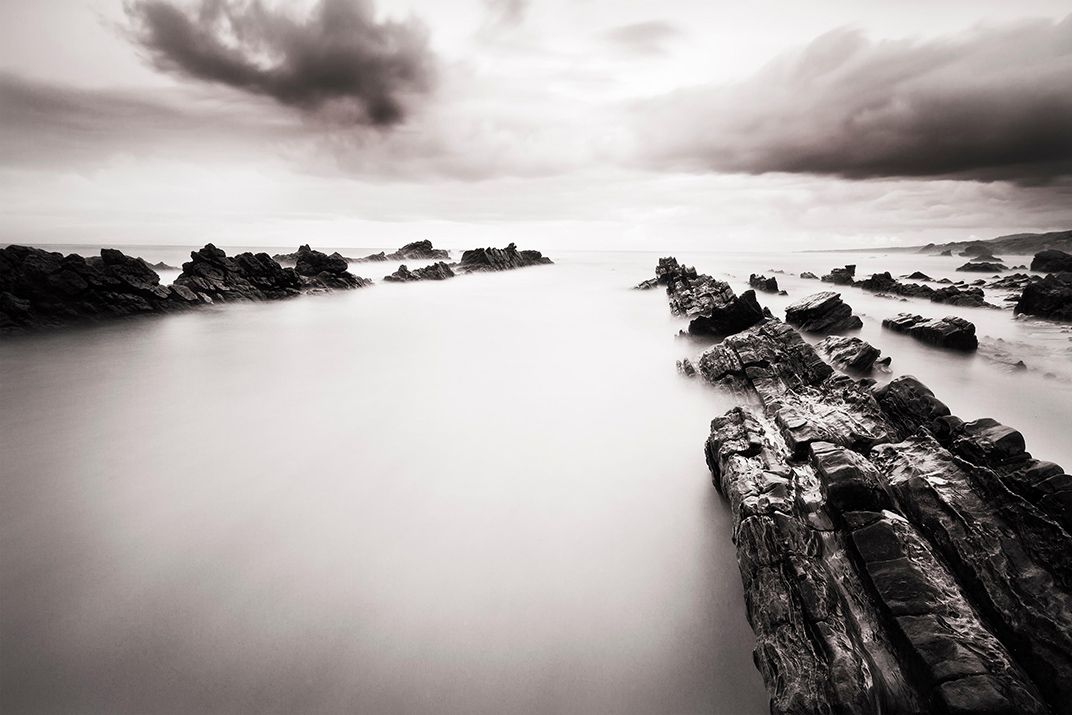A New Way for Stewardship of Mother Earth: Indigeneity
Smithsonian geographer Doug Herman proposes a return to sustainable solutions, based on the path laid by Indigenous peoples for millennia
/https://tf-cmsv2-smithsonianmag-media.s3.amazonaws.com/filer/8d/0e/8d0e7145-4834-4d75-b385-878a33257f92/24132_3_104714-1.jpg)
“The sail plan we’re on is not sustainable.” These are the words Nainoa Thompson, navigator of the Hawaiian voyaging canoe Hōkūleʻa, used to explain why that canoe was embarking on its current voyage around the world: the “sail plan” of modernity is destroying our ability to live on this Earth, and the time to act is now. As a microcosm of the Earth, the voyaging canoe is a perfect model and metaphor for how to live on this planet. There is even a Hawaiian proverb, “The canoe is an island, the island is a canoe.” The same principles apply in both cases, and for the Earth as a whole: we are limited to one vessel, with nowhere else to go. What we have is all we have. How do we make it sustainable?
The navigator uses both the stars in front and the stars behind to set his course. If we are to understand where we are going, we must also look at where we have come from, in order to understand the sail plan we are on. How did we get to where we are now? And how do we change course?
In the past, all our ancestors used knowledge and wisdom derived over generations, to understand how to live in specific environments using various technological, social and cultural means. They understood their dependency on the Earth and its inhabitants, and they looked to ensure abundance for the future.
The Protestant Reformation, the Enlightenment and the Scientific Revolution changed the way the Western world understood itself and its relationship to the Earth. At the outset of the Scientific Revolution, it was important to separate science and intellectual thought from the ideological constraints of the Church. But from there, a new tradition of reason and rationality took hold. One might presume that being “rational” is a good thing. Unfortunately, the specific kind of rationality—which I call rationality with small “r”—is the root of our problem.

The new intellectual model held that reason needed to be free from all “corrupting” influences—not just political and economic forces, but also emotions, imagination and human values. Within that framework, all forms of philosophy and spiritual inquiry, as well as the arts and literature, were deemed “unscientific.” Only that which could be validated empirically or proven mathematically fell into the realm of science and reason.
That served an important purpose at the time, but should have been a stepping stone rather than an end point in the acceptable methods of pursuing knowledge. The elevation of this form of “rationality” had enormous impacts on the split between science, culture and nature that can be directly linked to our current environmental crises.
As environmental philosopher Val Plumwood put it, reason was taken as characterizing the authentically human, creating the “supposedly sharp separation, cleavage, or discontinuity between all humans and the nonhuman world, and the similar cleavage within the human self.” The authentic human self became defined not as part of the natural, or physical or biological realm (or at best, as a special and distinct part) but sharply divided from those realms. Nature is not only alien and oppositional to humanity, but usually hostile and inferior.
The result is what environmental scholar Carolyn Merchant called “The Death of Nature,” and sociologists such as Max Weber and Theodor Adorno called the “disenchantment of the world.” It is a reductionism that poses a “mindless meaningless materialist universe open to endless unrestricted manipulation and appropriation: nature is the suppressed slave collaborator—a mere resource, or transparent enabler of projects, ” wrote Plumwood in 2009. As the Industrial Revolution picked up steam in the late 18th-century, it was essential that nature be understood not as animate, but raw materials for mass production.

This “rationality” also brought in the model of Homo economicus: economic man. Rather than focus on the community, the economic man seeks to do whatever he can to maximize his own personal benefit. This is called “economic rationalism,” and is the foundation of most modern economic theory. It’s best exemplified by Garrett Hardin’s Tragedy of the Commons, which we are indeed facing now.
Of course, Europeans never had the sole claim to systematic knowledge. Cultures everywhere have sustained themselves by developing systematic knowledge of planting, hunting, weather and climate, environmental conditions, medicine and health care, navigation and engineering—the list is extensive. So why are these not “science”? The short answer is, because the discourse of rationality tells us they are not—because they do not come from the European tradition of reason. It is still the legacy of colonialism that traditional lifeways, worldviews and understandings are seen as backwards and irrational, if not heathen. This thinking still colors our worldview and our acceptance of what is knowledge and what is not.
But there is also, coming from the Enlightenment, the parallel trajectory of the rationalization of human rights: questioning why one man should have power over another, rejecting the Divine right of kings in favor of democracy, leading to the rejection of slavery and colonialism, and producing the ever-broadening discourse of civil rights. The progression of human rights has been a crucial and outstanding part of the evolution of humanity. Just as rationality was needed to break free from the intellectual tyranny of the church, human rights are needed to end other forms of tyranny.
But it also brought its own problems that are directly relevant to the climate crisis today. Human rights strengthened the modern focus on the individual. Each of us has inalienable rights. We have no inalienable responsibilities. The linking of “rights” with “profitability” echoes profoundly in our society today: it is perceived by some, perhaps by many Americans, that we have a right to make as much money as possible, and that no laws or regulations should stand in the way.

Modern culture as we know it really emerged in the United States shortly after the turn of the 20th-century. As industrialization moved into full swing, and people increasingly moved from rural to urban areas, the cultural transformation we now call “modernization” began to take place. Writers such as Virginia Woolf and others noted in the early 1900s that human character had changed. “The rise of mass production and high consumption began to transform the life of the middle class itself,” wrote the preeminent Harvard sociologist Daniel Bell, with the Protestant ethic being replaced by what he called a “materialistic hedonism.”
This new culture was distinct in that it was not connected to traditional family or community values, or to religion in any conventional sense, or even to democracy. As historian William Leach puts it, “The cardinal features of this culture were acquisition and consumption as the means of achieving happiness; the cult of the new; the democratization of desire; and money value as the predominant measure of all value in society.”
Nonetheless, this new culture continued the stance of its Western antecedents by equating itself with Civilization, implying that anything else is uncivilized. With the end of World War II, this culture was spread around the globe in the form of “development,” a scheme overtly aimed at raising standards of living in poorer countries, and succeeding in some significant ways. But—either incidentally or covertly, as you care to believe—linking the rest of the world into a market economy that keeps accelerating the rapacious exploitation of the natural world.
This has been an incredibly fast, incredibly radical, and incredibly destructive transformation. What is clear is that the worldview that is commonly accepted as “rational” today is actually the result of specific historical, cultural and economic forces, not a natural product of intellectual inquiry.
In fact, this worldview is not “rational” at all. Environmental activist Val Plumwood argues that the human-centeredness of this so-called rational thinking “is not in the interests of either humans or non-humans, that it is even dangerous and irrational.” It disenables us from understanding “our embeddedness in and dependency on nature,” distorting “our perceptions and enframings in ways that make us insensitive to limits, dependencies and interconnections of a non-human kind.” We have become unable to “see ourselves as part of ecosystems and understand how nature supports our lives…. This failure” she states, “lies behind many environmental catastrophes….”
It has fostered an ideology of environmental exploitation that was hitherto unheard of and even anathema to most peoples on Earth. All of our ancestors would have found it horrific if they could see us now. As it ignores that on which our very survival is based, it is actually not rational at all. Dan Wildcat, author of the book Red Alert! Saving the Planet with Indigenous Knowledge, calls it the path of “self termination.”
/https://tf-cmsv2-smithsonianmag-media.s3.amazonaws.com/filer/ef/75/ef752f52-60ac-4db9-8a4e-c44a07486ce2/20140619_2213_5_254830-1-1.jpg)
I want to propose Rationality with a Capital R. This form of rationality reclaims the knowledge, insights and wisdom which were thrown out in the Enlightenment and the Scientific Revolution. Because we know we can’t wear those blinders any more.
Rationality does not accept infinitely expanding consumption based on a belief that when things run out, we’ll figure something out. That’s a castle made of sand, or as Wildcat, calls it this “laying a destructive foundation.” Rationality does not involve polluting our own nest so we can keep costs down in the short term. And Rationality does not involve discounting human values and experience as “unscientific” and therefore outside the realm of data worth careful consideration. This is ideology, not Rationality.
Real rationality takes a careful look at the science of how we are living and what’s going on with our planet. It looks holistically at both at our world and at our selves and our experience of the world. It asks questions about how our values reflect our interconnection with and dependency on other beings. It seeks not just detached rationality, but transcendent meaning. And it informs our cultural practices accordingly.
All of this is to say: Culture is the cause of climate change—including the culture of Science. If we want to do something about climate change, we need to tackle it from the angle of Culture—using Science. And here is where the Hōkūleʻa voyage comes into play.
In the traditional cultures of the world, wisdom developed from careful observation and experience in places over many generations. Today, scientists are coming to recognize that Indigenous Peoples’ long-term “study” of their landscapes and ecosystems have produced valuable knowledge, as their observational time frame is not five or ten years, but generations.
Most importantly, traditional cultures produce the wisdom to ensure survival. They embrace that we are part of the Earth, and depend on it, and depend on each other and all the nations of beings that inhabit this earth. And they think towards the future, and plan accordingly.

Instead of more modernity, or post-moderity, we need what we might call “indigeneity.” All of our ancestors were indigenous once, somewhere. Indigeneity is a way of being in the world: being indigenous to a place means having a depth of knowledge, understanding and connection to that place. Indigeneity also includes a sense of stewardship and responsibility for managing that place and working respectfully with its non-human inhabitants. Prior to that shift away from agrarian society that took place with the Industrial Revolution, most people on this planet retained some degree of Indigeneity under this definition.
This is not a romantic notion. Romanticism was indeed a 19th-century backlash against the culture of reason, but times have changed. Instead, we need what Dan Wildcat calls “Indigenous Realism.” We have science, and it’s good, it’s strong, it’s powerful. We have technology, which can be used wisely or not. And we have traditional cultural values to tell us what wisdom is. It’s time to put these all together.
It is not “romantic” to say that we are interconnected with and part of the Earth—to use the Lakota phrase “all my relatives” in referring to the soil, the rocks, the water, the air, the plants and the animals. This is science. We are one with our environment. The boundary between our bodies and our environments is not just permeable, but a blur of movement as components from Earth, Air, Water and Fire cycle through us. We partake of, and contribute to, the hydrological cycle, atmospheric circulation, the nutrient cycle and the mineral cycle. We embody, and return to, the animal, vegetable and mineral kingdoms. We are what we eat, drink and breath, and we share those elements with the rest of the Earth. Even our DNA tells us that we are related to all other species on the planet. The Lakota phrase “all our relatives” becomes a scientific reality when we consider this. And when we think of the world as “relatives” rather than “resources,” we will treat it differently.

Now, what does the voyaging canoe teach us about living “Rationally” in the world? Remembering that “the canoe is an island, the island is a canoe,” we can take that a step further to thinking about how to live on this Earth. I have summarized this in five values.
- ‘Ike (Knowledge, Sight): This is the intellectual component: the science, the experience and also the insight and wisdom as well. It’s one thing to know intellectually how to navigate, for example, and another thing to be an experienced or master navigator.
- Po‘okela (the Pursuit of Excellence): This refers to the individual striving that makes for success, but also the technological aspect: it took guilds of craftsmen to build a voyaging canoe, and for the vessel to survive the journey, the workmanship needed to be excellent.
- Kuleana refers your area of responsibility, but also to rights. These two go together. If we all look after our responsibilities, everything gets done.
- Pono means to act in a way that is balanced, not just socially, but cosmically. It is to do the right thing in any given situation, even if that is to your personal disadvantage.
- Mālama means “to take care of.” Take that which is your responsibility and make it thrive and flourish. Heal it when it needs healing. Especially, we need to look after the vessel that carries us. Hence the name of the Hōkūleʻa’s World Wide Voyage: “Mālama Honua—take care of the Earth."
Of course, all of this works best with aloha—compassionate, loving kindness. And this may be where the culture of individualism has its weakest link. But as with all of these values, it can be reclaimed if we accept that we are all in the same boat.
Today, with global interconnectivity and global environmental issues, of which climate change is the most important by far, the Earth is the canoe, the Earth is the island. It’s not just a metaphor. And we need to practice those five values that enabled survival on the canoe and on small islands. It’s time we replaced the value of self-interest with the values of living and working together. It’s time to promote a culture that unites science with wisdom. Otherwise, we are lost.
Knowledge should be about putting our best values into practice, NOT about giving everyone the freedom—and incentive—to pursue their own self-interest at the expense of others. If the Anthropocene tells us anything, it is that the Age of the Individual is over. We are all in the same boat, and that boat’s getting smaller, and leakier, and more full of trash. And that’s just not rational.
/https://tf-cmsv2-smithsonianmag-media.s3.amazonaws.com/accounts/headshot/Doug-BPBM-2011.jpg)
/https://tf-cmsv2-smithsonianmag-media.s3.amazonaws.com/accounts/headshot/Doug-BPBM-2011.jpg)